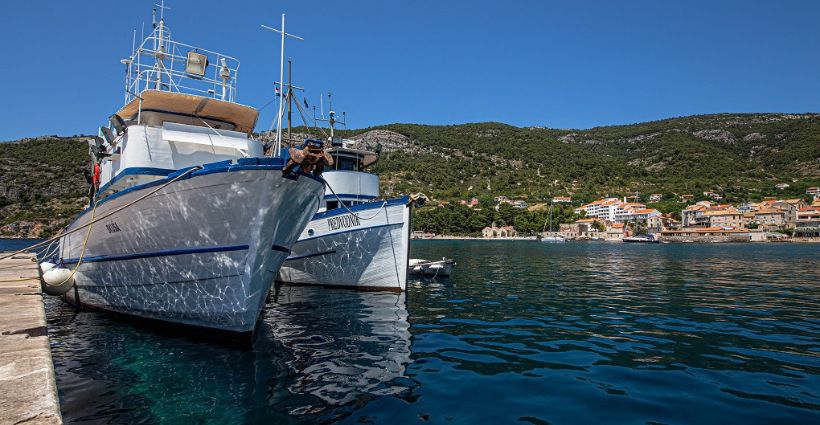
Freshly launched, "3EFISHING" is a new Interreg project that will introduce hybrid propulsion in the fishing vessels of the Italian and Croatian fleets operating in the Adriatic sea, thereby implementing the European Green Deal, the pact to achieve climate neutrality by 2050.
The project is expected to last 30 months and involves three phases, based on the key factors of "3EFISHING": Engineering, Environment and Economy.
The opening event held online on April 18 was attended, among others, by Professor Luca Fontanesi, University of Bologna Rector's delegate for competitive research projects, Professor Alessandro Chiarucci, dean of the Department of Biological, Geological and Environmental Sciences at Unibo, and Professor Fausto Tinti, project manager of "3EFISHING."
"Fisheries and aquaculture are among the most relevant socio-economic activities in the coastal regions of the world playing a central role in the Blue Economy of the Adriatic region, particularly for Italy and Croatia", explained Fausto Tinti, professor of Zoology at the University of Bologna. "However, these sectors suffer from a low level of performance in terms of public-private collaboration, applied research and technology transfer.
"Despite many efforts made to propose smart solutions and improve digitization and networking through previous research programmes, the heart of the sector suffers from a lack of innovation and modernization of the fishing fleet. In this context, the transition to electric-powered vessels that can reduce fuel consumption, noise and emissions at sea are desirable to mitigate both the negative economic and social effects on artisanal fisheries and aquaculture, and to financially support the sector" - continued Professor Tinti. "With the 3EFISHING project we intend to test and demonstrate the feasibility of this transition under real operating conditions, so as to make it easier for vessels to transition to electric and more eco-friendly technologies, both from an engineering and financial point of view".
The project will rely on the collaboration of ten partners. The University of Bologna and the Split Institute of Oceanography will be involved in transferring innovation into the key areas of engineering and small-scale fisheries/aquaculture and will be working to develop low-carbon solutions with support also from the Croatian Ministry of Agriculture and the Italian Institute of Services for the Agricultural Food Market.
The project also involves the Marche Region's Agency for Innovation in Agribusiness and Fisheries, "Marche Agricoltura Pesca", CIHEAM Bari, and Zadar County, which will be responsible for involving stakeholders in the sector. Cromaris, Croatia's leading aquaculture company, will be operating in innovation processes and testing.
Finally, associated with the project for the part dedicated to the dissemination of collected information are the Emilia-Romagna Region and Cestha, the Experimental Center for the Protection of Habitats in Marina di Ravenna, which deals with conservation programmes for endangered species and the promotion of sustainable management of the sea and coasts.